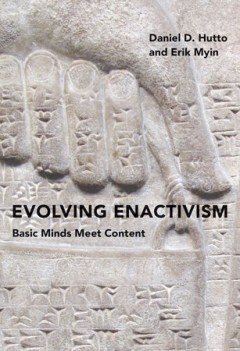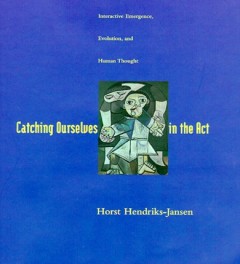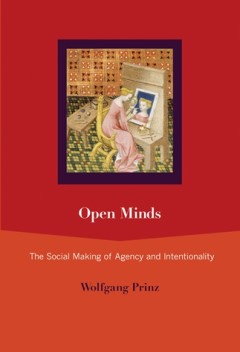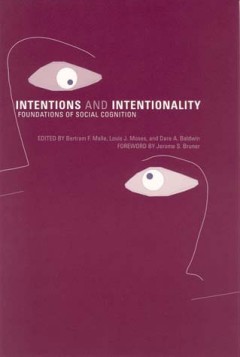Filter by

Evolving enactivism :basic minds meet content
Evolving Enactivism" argues that cognitive phenomena - perceiving, imagining, remembering -- can be best explained in terms of an interface between contentless and content-involving forms of cognition. Building on their earlier book Radicalizing Enactivism, which proposes that there can be forms of cognition without content, Daniel Hutto and Erik Myin demonstrate the unique explanatory advantag…
- Edition
- -
- ISBN/ISSN
- 9780262339773
- Collation
- 1 online resource (xxvi, 328 pages).
- Series Title
- -
- Call Number
- -

The Elm and the Expert: Mentalese and Its Semantics
"A Bradford book."OCLC-licensed vendor bibliographic record.
- Edition
- -
- ISBN/ISSN
- 0585020515
- Collation
- 1 online resource (xii, 128 pages) :illustrations.
- Series Title
- -
- Call Number
- -

Catching Ourselves in the Act: Situated Activity, Interactive Emergence, Evol…
"A Bradford book."OCLC-licensed vendor bibliographic record. Catching Ourselves in the Act uses situated robotics, ethology, and developmental psychology to erect a new framework for explaining human behavior. Rejecting the cognitive science orthodoxy that formal task-descriptions and their implementation are fundamental to an explanation of mind, Horst Hendriks-Jansen argues for an alternative…
- Edition
- -
- ISBN/ISSN
- 9780262275262
- Collation
- 1 online resource (xii, 367 pages).
- Series Title
- -
- Call Number
- -

Open minds :the social making of agency and intentionality
A novel proposal that the cognitive architecture for volition and cognition arises from particular kinds of social interaction and communication.In Open Minds, Wolfgang Prinz offers the novel claim that agency and intentionality are first perceived and understood in others, and that it is only through practices and discourses of social mirroring that individuals come to apply these features to …
- Edition
- -
- ISBN/ISSN
- 9780262301695
- Collation
- 1 online resource (xvi, 341 pages)
- Series Title
- -
- Call Number
- -

Intentions and intentionality : foundations of social cognition
"A Bradford book."Social interaction requires social cognition - the ability to perceive, interpret, and explain the actions of others. This ability fundamentally relies on the concepts of intention and intentionality. For example, people distinguish sharply between intentional and unintentional behavior; identify the intentions underlying others' behavior; explain completed actions with refere…
- Edition
- -
- ISBN/ISSN
- 9780262278942
- Collation
- 1 online resource (xiv, 417 pages) : illustrations.
- Series Title
- -
- Call Number
- -
 Computer Science, Information & General Works
Computer Science, Information & General Works  Philosophy & Psychology
Philosophy & Psychology  Religion
Religion  Social Sciences
Social Sciences  Language
Language  Pure Science
Pure Science  Applied Sciences
Applied Sciences  Art & Recreation
Art & Recreation  Literature
Literature  History & Geography
History & Geography